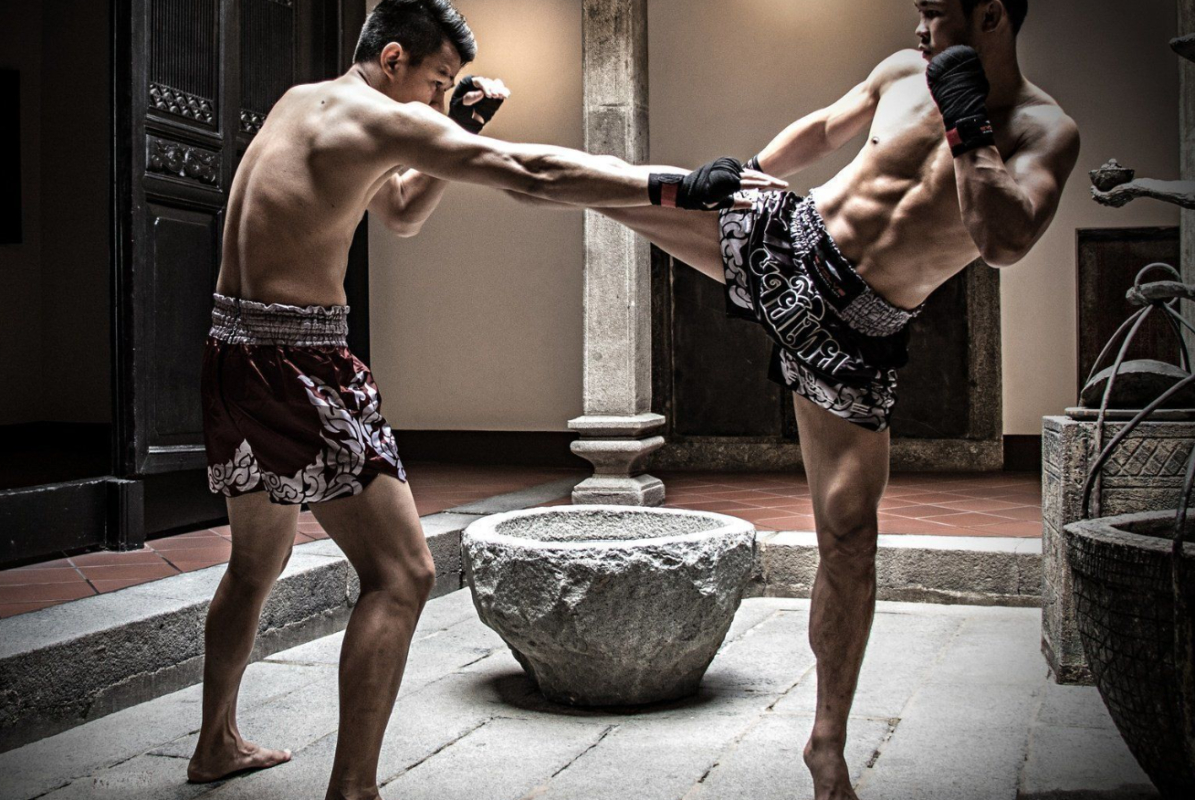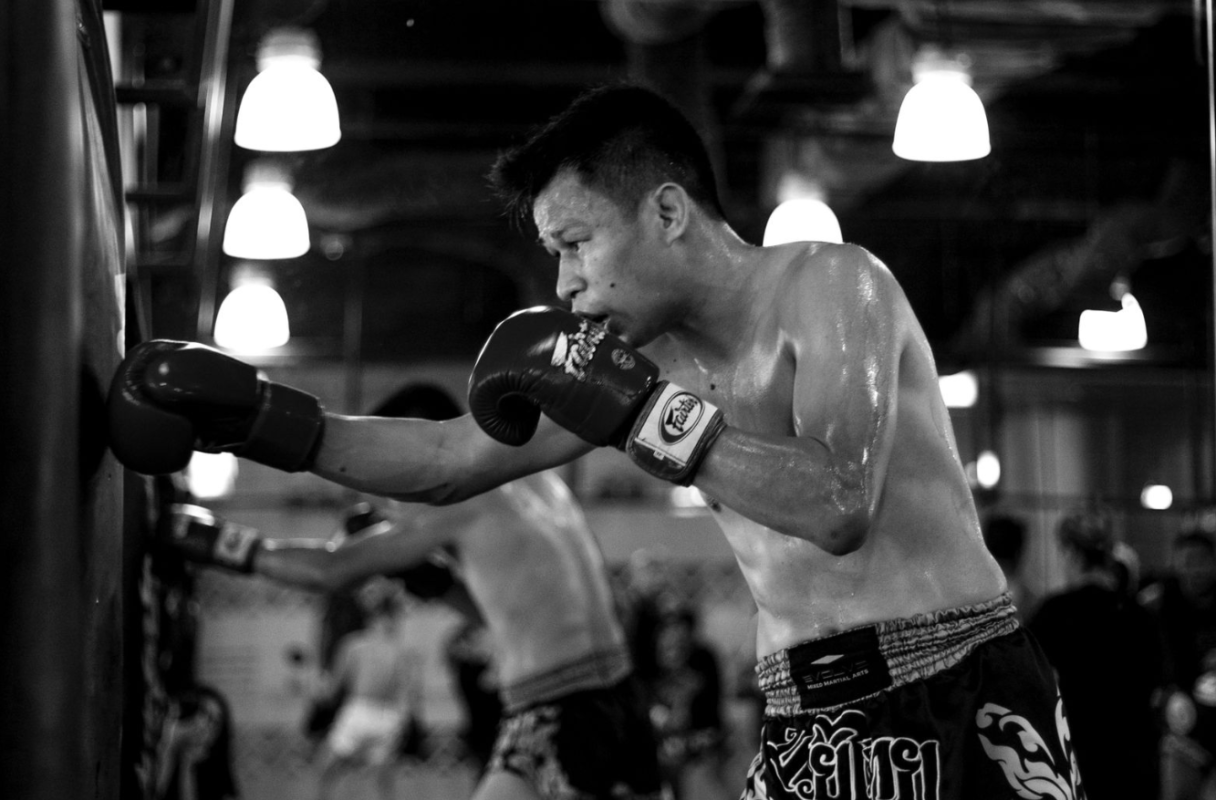Muay Thai Knowledge
The Mental Game of Muay Thai Kickboxing: Psychological Tips for Fighters
Understanding Muay Thai Kickboxing
History and Origins
Muay Thai Kickboxing, originating in Thailand, has a storied history as both a martial art and a cultural cornerstone. Its development for self-defense and military use has evolved into a sport celebrated worldwide.
Basic Techniques
The sport’s core techniques include punches, kicks, elbows, and knees. Mastering these moves requires dedication and practice, forming the foundation of any successful fighter’s skill set.
Physical Demands
Muay Thai demands intense physical conditioning. Strength, agility, and endurance are vital, achieved through rigorous training and disciplined routines.
The Importance of the Mental Game
Psychological Resilience
Psychological resilience is key to overcoming setbacks and maintaining focus. Developing mental toughness helps fighters stay composed and perform under pressure.
Mental vs. Physical Preparation
While physical training is essential, mental preparation can be the deciding factor in a fight. Techniques such as visualization and mental rehearsals are crucial for readiness.
Building Confidence in the Ring
Visualization Techniques
Visualization involves mentally rehearsing fights and techniques, boosting confidence by preparing for various scenarios and outcomes.
Positive Affirmations
Using positive affirmations reinforces self-belief and confidence, crucial for maintaining a positive mindset in and out of the ring.
Overcoming Self-Doubt
Combating self-doubt with mental exercises and positive reinforcement helps fighters maintain confidence and perform their best.
Dealing with Pre-Fight Anxiety
Breathing Exercises
Controlled breathing techniques reduce anxiety and keep the mind and body relaxed, essential for pre-fight preparation.
Meditation
Meditation calms the mind and enhances focus, reducing pre-fight anxiety and improving mental clarity.
Pre-Fight Rituals
Establishing routines and rituals before a fight can help manage anxiety and mentally prepare fighters for competition.
Staying Focused During Training
Setting Goals
Setting clear, achievable goals provides direction and motivation, helping fighters stay focused during training.
Avoiding Distractions
Minimizing distractions ensures effective training sessions, enhancing focus and productivity.
Training Mindfulness
Mindfulness during training promotes full engagement and focus, leading to more productive and effective practice sessions.
Managing Fear and Adrenaline
Adrenaline Control
Learning to control adrenaline helps fighters stay calm and focused, turning nervous energy into a positive force.
Facing Fears
Confronting and managing fears builds mental toughness, essential for maintaining composure in the ring.
Staying Calm Under Pressure
Techniques such as deep breathing and visualization help fighters stay calm under pressure, crucial for peak performance.
The Role of Mental Toughness
Developing Grit
Grit involves perseverance and passion for long-term goals. Developing grit is essential for overcoming challenges and achieving success.
Pushing Through Pain
Mental toughness enables fighters to push through pain, maintaining focus and determination despite physical discomfort.
Handling Setbacks
Managing setbacks with a positive mindset and learning from them is crucial for long-term success in Muay Thai.

Effective Mental Strategies for Sparring
Staying Calm
Remaining calm during sparring allows for clear thinking and strategic decision-making, enhancing performance.
Reading Opponents
Understanding and predicting opponents’ moves is a key mental strategy, improving a fighter’s ability to counter effectively.
Adapting Strategies
Adaptability is essential in sparring, allowing fighters to adjust their strategies based on their opponents’ behavior.
Coping with Losses and Setbacks
Learning from Defeat
Analyzing and understanding losses provides valuable lessons, helping fighters improve and avoid similar mistakes in future fights.
Maintaining Motivation
Staying motivated after setbacks involves setting new goals and focusing on future achievements, ensuring continuous progress.
Emotional Recovery
Managing the emotional impact of losses is crucial for mental recovery, enabling fighters to bounce back and stay motivated.
Developing a Strong Fight Mentality
Aggressiveness vs. Control
Balancing aggression with control is vital. A strong fight mentality involves harnessing aggression while maintaining strategic composure.
Fighter’s Mindset
Cultivating a fighter’s mindset, characterized by confidence, resilience, and determination, is essential for success.
Mental Conditioning Drills
Mental conditioning drills enhance resilience and mental toughness, preparing fighters for the psychological challenges of Muay Thai.
FAQs
How can I overcome pre-fight anxiety? Pre-fight anxiety can be managed through techniques such as deep breathing exercises, meditation, and establishing pre-fight rituals that create a sense of routine and calm.
What are some effective visualization techniques for fighters? Effective visualization techniques include creating detailed mental scenarios of fights, visualizing successful outcomes, and mentally rehearsing techniques and strategies.
How can I maintain motivation during long training camps? Maintaining motivation during long training camps involves setting clear, achievable goals, finding inspiration from mentors and role models, and celebrating milestones and successes.
What role does positive thinking play in Muay Thai Kickboxing? Positive thinking enhances confidence, resilience, and overall performance. Overcoming negative thoughts and practicing positive self-talk are essential for maintaining a strong mental attitude.
How important is mental toughness in Muay Thai? Mental toughness is crucial for success in Muay Thai. It involves pushing through pain, handling setbacks, and maintaining focus and determination under pressure.
What strategies can help with post-fight mental recovery? Post-fight mental recovery strategies include reflecting on performance, dealing with injuries both physically and mentally, and planning future training based on lessons learned.
Conclusion
The mental game of Muay Thai Kickboxing is as critical as physical training. Developing psychological resilience, confidence, and mental toughness can significantly enhance a fighter’s performance. By integrating mental strategies into training routines and maintaining a balanced approach, fighters can achieve success and sustain their mental and physical well-being in the demanding world of Muay Thai.

